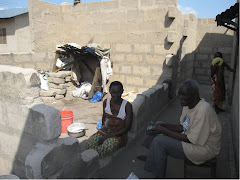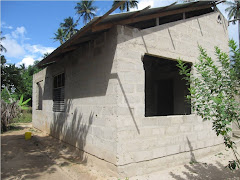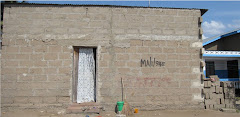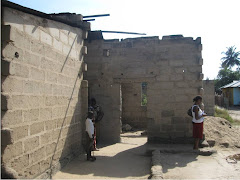Activities During the Week:
The credit committee met on Friday and reviewed 15 applications. 13 of the applications were approved for disbursement the following week. The average loan amount appoved during the week was TSH 1,070,000 or approximately $790. Four of the clients were approved for the maximum loan amount of 1,500,000, but the other had loan amounts of 1,000,000 or less.
The approved clients had a wide variety of income sources, including selling cloth, raising livestock, small business, catering, decorating for special events and others. Several of the clients were widows or represented women-headed households. The next credit committee meeting will be on 23rd October. We expect that October may be our first month to disburse 50 or more home improvement loans.
MAKAZI BORA posters were received from our printers and several were displayed at hardware stores in Kongowe, in Tuangoma Ward. The posters will be used for a coming promotional campaign.
PROMOTION CAMPAIGN:
The Need for Promotion:
Because MAKAZI BORA loans are relatively small, a large volume of loans are needed on a consistent basis to achieve operational self sustainability and cover all operating costs. In these early stages of the MAKAZI BORA pilot, one of our fears was that demand might overwhelm our capacity to meet it, which could result in dissatisfied customers, poor lending and overall weak performance. In these first few months, we have relied primarily on word of mouth and distributing some brochures as a means of promoting the MAKAZI BORA product. This was successful in getting started and still bring an ever-increasing numer of clients. A good product and good service seems to sell itself to a large extent and we continue to see "volunteer promoters" who bring their friends to hear about MAKAZI BORA.
Although the number of new clients per month continues to grow, we are beginning to look into the future when we will need a larger volume. Various means of promotion could assist in attracting more clients who have not yet heard of the MAKAZI BORA home improvement loan. With that in mind, we have decided to begin a promotional campaign with the objective of increasing the number of new clients within our current operating area, especially towards the end of this year and into the beginning of next year.
The Poster:
Although calling it a campaign might be an exaggeration, we have started a promotional exercise of distributing MAKAZI BORA posters. The poster prominently displays the MAKAZI BORA logo, which we are in the process of registering as a trademark of Habitat for Humanity Tanzania with the slogan: "The loan for improving your house." It lists the general loan uses along the side: Completion, Finishing, Extension, Repairs, Auxiliary Structures and has photos of people working on houses and some smiling faces. The loan amounts are included, which is designed to let people know that they can get loans for small home improvement activities, but also to let people know that the maximum loan amount is relatively small and is not targeted to very large construction projects. The poster includes the Mbagala Office contact information and the physical location of the office, with the assumption that many people will simply come to the office for a visit. The poster is colorful and attractive and hopefully will generate some interest.
The Target Locations:
The promotion exercise targest hardware and construction supply dealers in the MAKAZI BORA operating area. An attempt will be made to work with construction supply dealers as potential promoters of the MAKAZI BORA home improvement loan. Construction Supply dealers potentially could be good partners in promotion, because:
- The MAKAZI BORA loan is for pre-existing home improvement projects. Our target is people who are already in building process and therefore purchasing, have purchased or thought about purchasing materials. They are likely to already be frequenting their local dealers of building supplies.
- Independent dealers of building supplies tend to follow the market and are located close to where people are building. Small construction supply shops are in a sense a proxy indicator for the home improvement market.
- The MAKAZI BORA loan is disbursed in cash for the purchase of construction supplies and services. Dealers of construction supplies have a mutual interest with Habitat for Humanity in that people with home improvement projects in their area who obtain MAKAZI BORA loans are likely to buy supplies from them and increase sales.
- Shops are not only places for the purchase of goods, but serve as areas for discussions, exchange of ideas and social interaction. An informed shop keeper has multiple opportunities to explain and promote the MAKAZI BORA loan in his/her area.
- Attractive posters at construction supply shops may attract potential customers for the shop keeper.
- Provide the shop owner / manager with a letter introducing MAKAZI BORA.
- Explain the MAKAZI BORA loan product and initiative to the shop owner / manager.
- Ask the shop owner / manager if he or she would like some promotional items and be willing to inform customers about the availability of MAKAZI BORA loans.
- Provide the shop owner / manager with a MAKAZI BORA poster for display
- Provide the shop owner / manager with at least 20 MAKAZI BORA brochures.
- Provide a MAKAZI BORA t-shirt to shop keepers / manager with large stores that include cement and iron sheets among the products sold.
- Take down information about the shop using the PROMOTIONAL ACTIVITIES WITH CONSTRUCTION SERVICE SUPPLIERS form.
- Take the GPS coordinates of the shop.
- Take a photo of the shop if permitted
- Enter GPS coordinates and shop name into Google Earth for Reference.
- Create a booklet of participating shops in the operating area.
The idea is that the promotional activities could also lead to having a list of construction supply dealers in the area; something like a construction supply and support service directory. This could be used to direct clients who are looking for materials and also to verify the current prices of materials in the various parts of our operating area when reviewing client budgets. We could even promote a Construction Supply Dealer of the Month in the Mbagala Branch Office, with a photo of the shop and list of items sold. Working with construction supply dealers could be a win-win-win situation for Habitat, the dealers and clients.
A Dose of Reality:
We had set Tuesday 6th October as a full day for trying out the promotional exercise. Unfortunately, the printers failed to deliver the posters as promised and we did not get them until the morning of 8th October. Boaz and I decided to go out in the field in the afternoon to try out our promotion methodology. Boaz thought that Kongowe (within Tuangoma Ward) would be a good place to start, because we have had very few clients from that area, despite apparent construction activity taking place. We boarded a bus at Rangi 3 (near the Mbagala Branch Office) and took a short ride to Kongowe to start off our promotion exercise.
At most of the shops we visited, we did not find the owners. After explaining why we were there and telling them about the MAKAZI BORA product and our potential mutual interests, the people working at the shops were more than willing to let us put up a poster or two. At one shop, we were even told to put our poster over top of a faded poster for a popular cell phone network. Putting up posters at shops was apparently not going to be a problem.
When it came to recording information about the shop or taking a photo, however, it was a completely different story. We had some simple forms to record some very basic information such as the name of the shop, where it is located, the name of the owner, a contact number, the types of materials sold and they types and quantities of promotional materials we left there. Most of the employees became immediately suspicious of providing any information or even allowing us to write down what we could visibly see with our eyes. They also would not let us take a photo of the shop showing the poster. "Unless the boss is here..." was the standard answer. Some shops did not even think they could take brochures in the absence of the boss. Posters are going to work fine, but the wider initiative may take a lot more work and time than originally expected, if it will even work at all.
Going Forward:
To get the promotional materials out in the targeted areas, it may be necessary to separate the distribution of posters from a wider partnership and creation of something like a construction support directory. It might just take too much time to get the information in cases where "the boss" is not available at the shop when visited. We have also thought of providing posters to our clients who have shops in the operating area, whether construction supply shops or not. Many are small business owners and would likely be willing to display the poster. As clients, they are also able to explain the product to others. The key will be ensuring that our clients have a positive experience to relate.

.jpg)













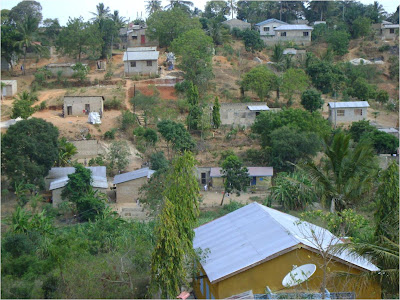















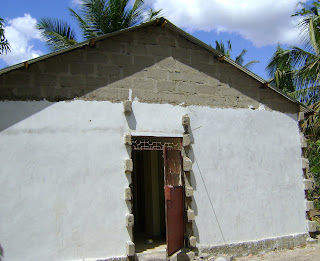


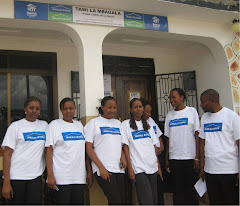
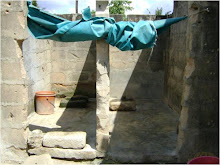

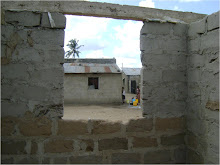
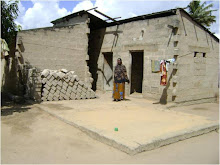
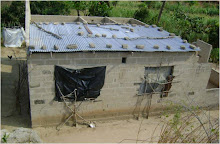
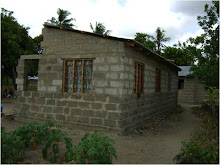

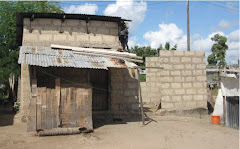






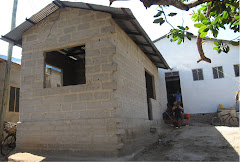.jpg)






